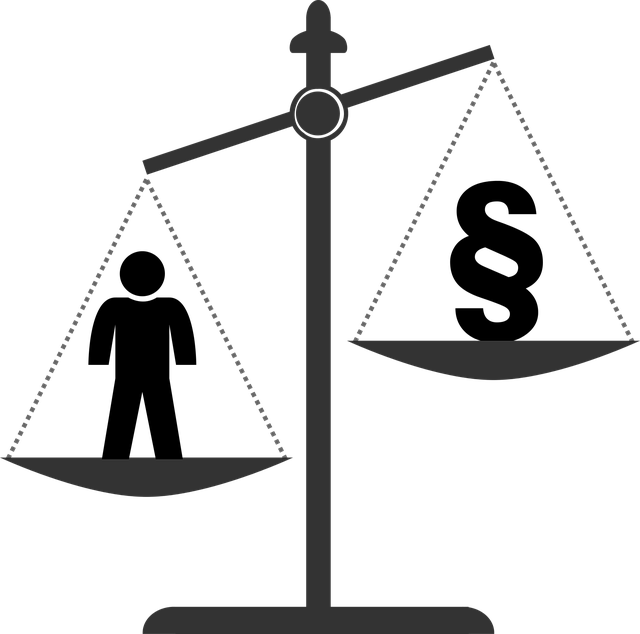Litigation types vary widely, from personal injury to white-collar crimes, each with unique legal procedures. Understanding these types is crucial for plaintiffs and defendants. In criminal trials, voir dire—the process of questioning jurors for impartiality—is paramount in selecting an unbiased jury. Effective voir dire questions uncover biases and past experiences to ensure a fair trial. Alternative Dispute Resolution (ADR) offers efficient, cost-effective solutions compared to traditional litigation, with methods like mediation and arbitration. Case studies highlight the significance of voir dire in successful criminal defense strategies, emphasizing the importance of thorough preparation and understanding jury dynamics for achieving just results.
In the intricate landscape of legal disputes, understanding different litigation types is paramount. This article delves into the multifaceted world of legal conflicts, offering an overview of common disputes. We explore crucial processes like voir dire—the jury selection process in criminal trials—highlighting its importance for ensuring fairness. Additionally, we dissect alternative dispute resolution (ADR) methods and their benefits, while case studies provide real-world insights into diverse litigation outcomes and strategies.
- Understanding Litigation Types: An Overview of Common Legal Disputes
- The Role of Voir Dire: Jury Selection Process in Criminal Trials
- Importance of Impartial Jurors: Ensuring Fairness in Criminal Proceedings
- Alternative Dispute Resolution (ADR): Benefits and Types
- Case Studies: Examining Different Litigation Outcomes and Strategies
Understanding Litigation Types: An Overview of Common Legal Disputes

Litigation types vary widely, each with its unique characteristics and legal procedures. Understanding these different types is crucial for both plaintiffs and defendants in navigating the complexities of the justice system. Common legal disputes range from personal injury cases to contract disagreements, employment disputes, and white-collar and economic crimes. Each category requires a distinct approach, with varying degrees of formality and potential consequences.
In criminal trials, for instance, the importance of voir dire cannot be overstated. This process, which involves questioning potential jurors to ensure impartiality and competence, plays a pivotal role in selecting an unbiased jury. An unprecedented track record of successful general criminal defense strategies can significantly impact outcomes, demonstrating the value of meticulous preparation and legal expertise in managing these cases.
The Role of Voir Dire: Jury Selection Process in Criminal Trials

The voir dire process plays a pivotal role in shaping the outcome of jury trials, especially in the context of general criminal defense. This meticulous selection procedure is an integral part of ensuring a fair and just trial, where both the prosecution and defense have a say in choosing the jury. During voir dire, potential jurors are questioned to assess their suitability, revealing biases, prejudices, or any prior experiences that might influence their decision-making. It’s not merely about picking a random group; it’s about creating a balanced and impartial jury capable of rendering winning challenging defense verdicts.
Understanding the nuances of voir dire is crucial for crafting effective strategies in jury trials. Lawyers on both sides have the opportunity to challenge or accept potential jurors based on their responses. This dynamic ensures that the final jury panel is representative, free from any undue influence, and equipped to consider all evidence impartially. When executed properly, this process can significantly impact the course of a criminal trial, ultimately shaping the outcome in favor of a general criminal defense strategy.
Importance of Impartial Jurors: Ensuring Fairness in Criminal Proceedings

Impartial jurors play a pivotal role in ensuring fairness during criminal proceedings. The selection process, known as voir dire, is crucial to this end. During voir dire, potential jurors are questioned to determine their impartiality and ability to render an unbiased verdict based on the evidence presented. This meticulous procedure helps lawyers ensure that their clients receive a trial free from bias.
The importance of impartial jurors cannot be overstated. They are the cornerstone of our criminal justice system, guarding against unfair trials and ensuring that every individual is treated equitably across the country. Effective voir dire questions delve into potential biases, past experiences, and preconceptions to help attorneys make informed decisions about selecting a fair and unbiased jury for all stages of the investigative and enforcement process.
Alternative Dispute Resolution (ADR): Benefits and Types

Alternative Dispute Resolution (ADR) offers a range of benefits to both corporate and individual clients facing legal disputes. By choosing ADR over traditional litigation, parties can often resolve their issues more quickly, at a significantly reduced cost, and with greater privacy and flexibility. This process also encourages cooperative problem-solving rather than adversarial confrontation, fostering better relationships between disputing parties.
There are several types of ADR, each suited to different scenarios. Mediation, for instance, involves a neutral third party who facilitates communication and guides the parties towards an agreement. Arbitration is more like a mini-trial where an arbitrator listens to both sides and makes a binding decision. For complex cases involving white collar and economic crimes, a structured process like Early Neutral Evaluation (ENE) or Concurrent Negotiation can help streamline negotiations and potentially avoid costly litigation altogether, ensuring a swift resolution for his clients.
Case Studies: Examining Different Litigation Outcomes and Strategies

In the realm of litigation, understanding various outcomes and strategies is key to navigating complex legal scenarios. Case studies offer a unique lens into this world, providing insights that can shape legal approaches and decisions. For instance, in criminal trials, the role of voir dire cannot be overstated; it’s a pivotal process where potential jurors are questioned to ensure a fair and impartial jury. This strategy is instrumental in achieving a just outcome, especially in high-stakes cases with significant public scrutiny.
By examining real-world examples, legal professionals can assess successful defenses that led to the complete dismissal of all charges. These case studies often highlight innovative strategies and the importance of thorough preparation. An unprecedented track record of favorable outcomes in complex litigation is a testament to effective legal advocacy, demonstrating the value of meticulous planning and an understanding of both the law and the jury’s perspective.
In understanding litigation types, from common legal disputes to alternative dispute resolution (ADR), it’s clear that each process plays a vital role in achieving justice. The article has explored crucial aspects such as voir dire, which is instrumental in selecting impartial jurors for fair criminal proceedings. As demonstrated through case studies, the outcome of litigation can significantly vary based on strategies employed. By recognizing the importance of voir dire and other key elements, legal professionals can navigate complex disputes effectively, ensuring fairness and just resolutions.






